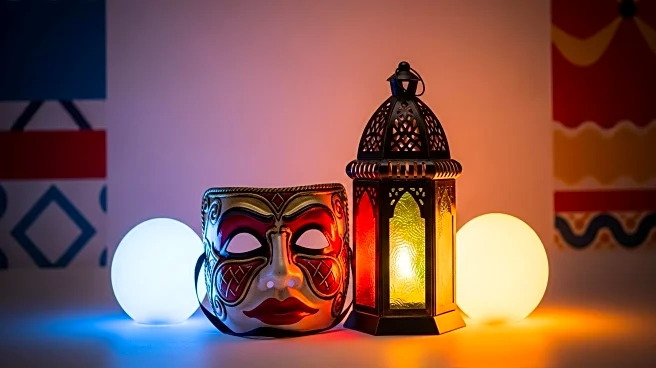What's Happening?
A comedy festival in Riyadh, Saudi Arabia, featuring prominent American comedians such as Kevin Hart, Dave Chappelle, and Bill Burr, has sparked backlash from human rights advocates. The event, organized by the Saudi Tourism Authority, coincides with the anniversary of journalist Jamal Khashoggi's assassination, which has been linked to Crown Prince Mohammed bin Salman. Critics argue that the festival is an attempt by Saudi Arabia to distract from its human rights abuses, including the repression of free speech and the imprisonment of activists. Some comedians have defended their participation, citing the opportunity to perform in a socially conservative country and financial incentives.
Why It's Important?
The participation of American comedians in the Riyadh Comedy Festival highlights the complex interplay between cultural diplomacy and human rights issues. While the festival aims to project a more open image of Saudi Arabia, it also raises ethical questions about the role of entertainers in legitimizing regimes with poor human rights records. The event underscores the ongoing tension between economic interests and advocacy for human rights, as well as the challenges faced by artists in navigating these dynamics. The festival's timing, coinciding with the anniversary of Khashoggi's murder, further amplifies these concerns.
What's Next?
The festival is likely to continue drawing attention to Saudi Arabia's human rights record, potentially influencing future decisions by international artists and entertainers regarding participation in events within the kingdom. Human rights organizations may increase their advocacy efforts to highlight ongoing abuses, while Saudi Arabia may continue to use cultural events as a means of soft power to improve its global image. The response from the international community, including potential diplomatic or economic repercussions, remains to be seen.
Beyond the Headlines
The festival's controversy also reflects broader geopolitical dynamics, including the strategic use of cultural initiatives by authoritarian regimes to enhance their global standing. This situation raises questions about the responsibilities of artists and entertainers in engaging with such regimes and the potential impact on their reputations. Additionally, it highlights the role of cultural diplomacy in international relations and the ethical considerations involved in balancing artistic freedom with advocacy for human rights.









